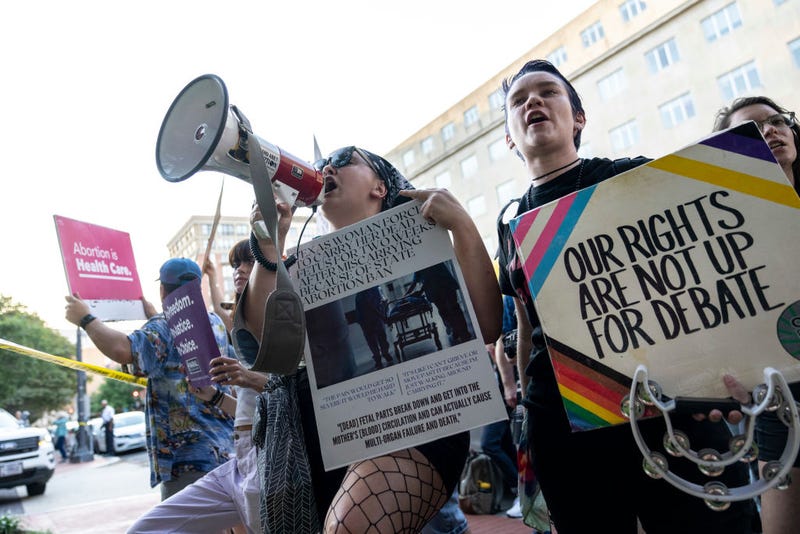
As we get closer to the midterm elections, inflation and abortion have emerged as the leading issues for voters, according to recent polling.
Inflation – which rose again in August after remining flat in July, according to Bureau of Labor Statistics data released this week – impacts most voters.
However, it appears to be a particularly high concern for Republicans, while abortion is a more pressing issue for Democrats.
According to an article published Thursday in The Atlantic, Democratic pollster Molly Murphy said 2022 is not an election year when most Americans “agree on what the top priorities [for the country] are.”
A Marist poll released last week, before the latest report on inflation was released, found that “the proportion of Americans concerned about inflation, though, has declined, and abortion is a key issue for the campaigns especially for Democrats.”
In the wake of the U.S. Supreme court’s decision to overturn Roe v. Wade abortion protections, most people (58%) who participated in the Marist poll said they were motivated by that decision to vote in the midterms, slightly down from 61% right after the decision was announced in June. Along with this, results showed that 48% of registered voters say they are more likely to vote for the Democratic congressional candidate in their district rather than the Republican 44%.
“The Supreme Court’s decision on [Dobbs v. Jackson Women’s Health] this summer has had a major impact on electoral politics heading toward the midterm elections,” said Lee M. Miringoff, director of the Marist College Institute for Public Opinion. “Not only are Democrats more motivated to vote than Republicans because of the Court’s decision, Democrats remain energized whereas Republican interest has faded since June.”
Still, inflation (30%) was the number-one voting issue for Americans as of last week, down from 37% in July. It was still well above abortion (22%) as the top issue.
Additionally, 62% of Americans said they think the U.S. economy is in a recession, and more (39%) think Republicans would do a better job dealing with the economy than Democrats (26%). A majority of Americans (57%) said President Joe Biden’s decisions have weakened the economy – the highest with this view since he was elected.
However, Biden’s overall job rating continued to increase as of early September to 41%.
“The shift in the campaign debate away from Biden’s management of the economy and toward the GOP’s priorities on abortion and other issues has been the principal factor improving Democratic prospects since earlier this summer,” said Ronald Brownstein this week in The Atlantic.
He explained that Republican voters stress inflation, the overall condition of the economy, crime, and immigration while Democratic voters have an eye on abortion rights, the threats to democracy created by former President Donald Trump, gun control, climate change, and health care.
Although most people surveyed in the Marist poll are disappointed with the way Biden has handled the economy, Brownstein noted some positive economic trends so far in his term. These include job growth, infrastructure projects, manufacturing-plant openings and new private investments for electric-vehicles.
“Strategists and pollsters on both sides believe that these diverging agendas could intensify one of the most powerful trends in modern American politics: the class inversion in which Democrats are running stronger among white voters with college degrees and Republicans are gaining ground among white voters without them, as well as among blue-collar Latino voters,” Brownstein said.
Biden’s decision to cancel $10,000 of student debt for low- to middle-income borrowers this summer was also welcome economic news for many college graduates.
As of Thursday afternoon, the push and pull of inflation and abortion concerns was reflected in FiveThirtyEight’s election predictions, which indicate Democrats will win the Senate and Republicans will win the House of Representatives in November.


